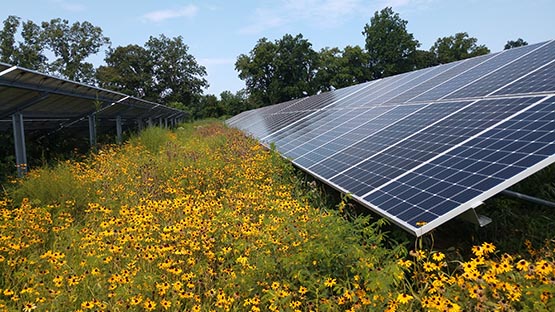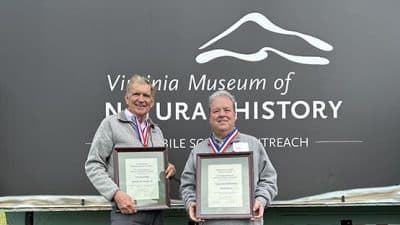The Top Story by Chris Graham
Mary works – she’s not supposed to; in fact, her doctor has ordered her not to.
“But I have no choice,” said Mary (name changed at the subject’s request).
“I’ve got to have something coming in. To pay my rent and have money for gas. My sister sends me money when she can. That helps pay my bills. That’s how I make it,” Mary said.
The face of poverty isn’t what many assume it to be. It is largely that of people who hold down jobs in the face of multiple trials and tribulations – Mary, a Staunton resident, suffers from a number of disabling ailments, in addition to being the single parent of a 15-year-old – and just have trouble making ends meet.
“It’s the myth of Charlottesville and the myth of Waynesboro and the myth of Central Virginia and the myth of the Shenandoah Valley that everything is just fine,” said Joe Szakos, the executive director of the Charlottesville-based Virginia Organizing Project.
It does indeed seem to be the case these days that no one wants to go out of their way to concede that poverty exists in their communities – particularly in the relatively well-off Shenandoah Valley and Central Virginia.
The lack of attention to the issue, though, can lead to a dangerous lack of focus on what can be done and needs to be done to help those who are in need of a hand up.
“When we sit down for a Thanksgiving meal, what’s our goal? Well, one, our goal is to make sure that everybody is well fed,” Szakos told The Augusta Free Press.
“We would take into consideration if one person has to be careful of salt intake, for example. Or if somebody else needs to be careful about sugar. We would go out of our way to meet the needs of the people in front of us. We want to make sure that everybody is taken care of,” Szakos said.
“We certainly don’t do that day by day. We’re not really paying much attention to the needs of those around us,” Szakos said.
Living on the edge
Mary moved to the Queen City from Baltimore five years ago to take care of her brother, who had fallen ill with lung cancer.
“My brother got sick, and my mother was 84 years at the time, and she was sick,” Mary told the AFP.
“We couldn’t have put him in a nursing home, because she would’ve worried herself sick about him. So I moved out of my little house and came down here.”
Her brother and mother are both gone now. So is the money that she had saved up when she left Baltimore.
A big part of the reason for that is that she finds herself spending a good bit of her down time at the doctor’s office. Her health problems run the gamut from issues with a bad back to incontinence to depression.
“I am so stressed out. I’m 54, and all this started when I was 49. I know that has something to do with it. I don’t know some days how I’m going to make it to the next day,” Mary said.
And she is not alone. Hundreds of thousands of Virginians live in poverty or just above the poverty line – many of them disabled, like Mary, many of them children.
“A lot of people don’t make that connection,” Szakos said. “They think that poverty is one of two things. You’re a lazy slob, and you won’t do anything, or you’re just down on your luck, and it’s a temporary sort of thing. But we’re not talking about temporary here.”
A lifeline
The politics of poverty has been pushing the notion that the assistance available to those who are struggling to make ends meet needs to be of a temporary nature.
“People of course go through hardships. We have services to help those people. But one of the problems that we’ve gotten to with government at the state and federal level is evident when you look at what happened in Louisiana compared to what happened in Mississippi in Katrina,” said Del. Steve Landes, R-Weyers Cave, the chair of the Republican caucus in the Virginia House of Delegates.
“In Louisiana, in that state, they provide everything for everybody. And what happened is many of those folks could not be self-sufficient to even begin to know where to start to rebuild their lives. That is the problem. We can go too far with programs where you’re helping people so much that there’s no initial drive or incentive. That’s where the balance has got to be,” Landes told the AFP.
“Everything should be geared toward getting people back to the full opportunities that are out there for people, whether they have a disability or some kind of problem they’ve encountered in their life. That’s where the state should be helping. But everything ought to be geared toward making people self-sufficient as much as possible,” Landes said.
That works well in theory, said the Rev. Douglas Smith, the executive director of the Richmond-based Virginia Interfaith Center for Public Policy.
“But in practice, we have to realize that cutting services will not solve poverty. That seems to be the most obvious thing,” Smith told the AFP.
“If somebody were drowning, we wouldn’t cut the lifeline to save them. You’d probably actually throw them another buoy. We need to ensure that the safety net is strong enough to help people stand,” Smith said.
“Katrina, Rita and Wilma seem to be fading quickly from our minds. So much so that even the Congress seems more willing to maintain enormous tax cuts for the ultrawealthy, the people making more than a million dollars per year, while at the same time cutting services for those who are the least able to sustain those cuts,” Smith said.
“We need to all be honest with ourselves and say that we need to look for ways to find efficiencies in service delivery. Social services is not perfect. We can be better stewards of money, certainly. But you can’t throw the baby out with the bathwater,” Smith said.
A living wage
Another solution backed by poverty advocates would have localities and state governments enacting legislation guaranteeing what is referred to as a living wage.
“You have so many people who are working full time and are yet still living in poverty. They’re not mooching. They’re not slouching off. They’re not just taking advantage of society. They’re out there working. But there are certain sectors – retail, food service, housekeeping, landscaping – and we know this, where people are struggling. And we pretend that everybody is doing just fine,” Szakos said.
It is easy to do – looking at data like employment figures.
“While the numbers look impressive – we have a low unemployment rate, for example – those kinds of things suggest that there isn’t a problem with poverty in the area,” said Capt. David May, the corps officer for The Salvation Army unit based in Staunton.
“But what we have found is that there are a lot of people who are employed in positions and situations where the wages are low, and more and more people are working what are called extended part-time hours where benefits such as health insurance aren’t available. This masks the fact that there is a real need out there for people who are trying to find jobs that will help them make ends meet,” May told the AFP.
The problem is defining what is a living wage – and how to apply the concept to different parts of a state like Virginia where the cost of living is not at all standard.
“The problem with the concept of a living wage is that a living wage is different depending on where you are. What most of the legislation I have seen has shown is that they want to set a standard statewide, kind of like the minimum wage. The problem is that when you try to tie it to what somebody can actually live off of or survive on, that can be hard to calculate. Because what it may be in Charlottesville can be completely different than what it is in Waynesboro or Staunton or Southwest Virginia,” Landes said.
Another limitation – “the living wage assumes that everybody is working, working as hard as they can, and doing everything they can to make sure that they’re making it,” Landes said.
“You can’t assume those variables. Those are individual choices that people make,” Landes said.
Bottom line
Landes said public education and economic development are the keys to eradicating poverty.
“Everybody has access to public education. That’s why high academic standards and things that we’re trying to do to raise those achievement levels for students are so important. You can’t succeed if you don’t have a good, solid education, and a basic education,” Landes said.
“By improving our economy, by improving our system, so that people have those opportunities to succeed, then in our free society, people can do what they want. If somebody decides that they want to be a plumber, they want to be a carpenter, then they should be able to do that. If somebody wants to be a doctor or lawyer, then they ought to have that opportunity,” Landes said.
“There are plenty of examples of people who have come from poverty who have achieved that. But there’s the one key thing – they had the education opportunity or the workforce-training opportunity, and they had the drive and desire to succeed. If somebody doesn’t want to succeed, even if they have the tools before them, and we make sure that it’s a fair and level playing field, then there’s little we can do to change that,” Landes said.
Mary’s son, unfortunately, is likely going to miss out on the educational opportunities that should give him a chance to escape the cycle of poverty that he and his mother have been in since they moved to Virginia.
“He’s going through a GED program so he can graduate early and get a job,” Mary said.
“He wants to work at McDonald’s. He said he wants to help out. He said he wants to help provide for the family. He said he wants to go to work. I said, ‘OK. Work,’ ” Mary said.
(Originally published 11-25-05)










